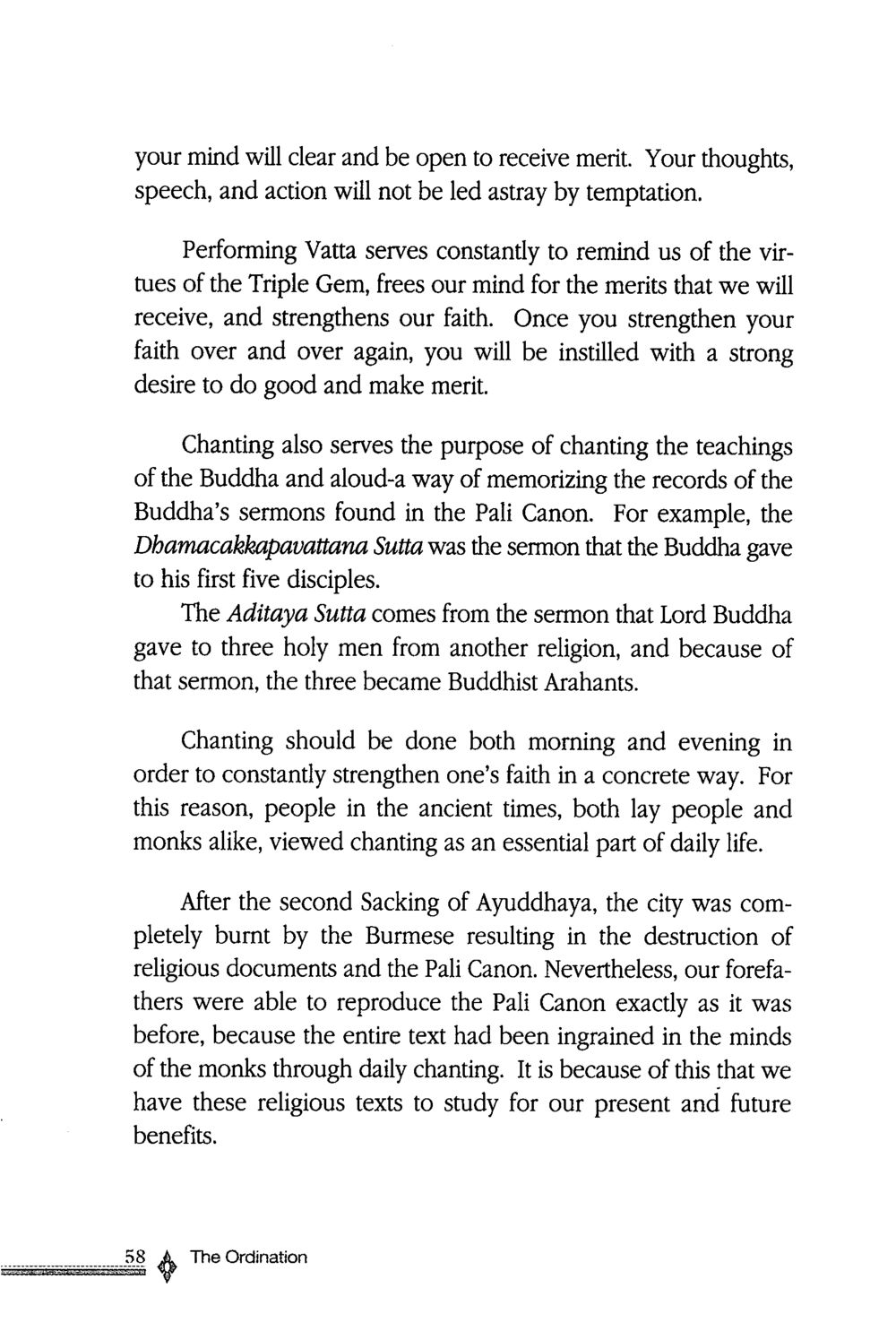The Importance of Chanting in Buddhism : หน้า 59/105
The ordination : หน้า 59/105 Explore the significance of chanting in Buddhism, its role in strengthening faith, and its historical importance in preserving sacred texts.
1 ครั้ง

สรุปเนื้อหา
Chanting in Buddhism plays a crucial role in enhancing faith and preserving teachings of the Buddha. It reminds practitioners of the virtues of the Triple Gem and helps them avoid temptation. Historically, chanting has been essential for memorizing sacred texts, such as the Pali Canon, which includes important sermons like the Dhamacakkavattana Sutta. Even after the destruction of many religious documents, monks maintained the integrity of these texts through daily chanting. This practice remains vital for individuals, fostering a strong desire to perform good deeds and make merit.
หัวข้อประเด็น
-Importance of Chanting
-Historical Preservation of Texts
-Buddhist Teachings and Suttas
-Role of Chanting in Strengthening Faith
-Daily Life and Rituals in Buddhism









































































































